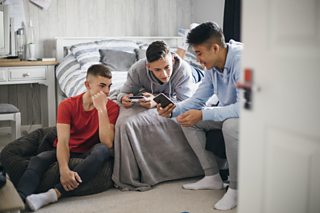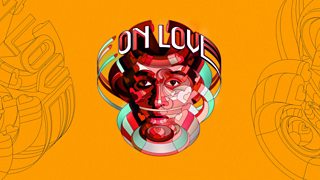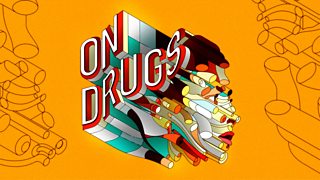Sex Education
This week Jacob Hawley: On Love explores ‘Sex Education’. And let’s face it, it sounds a bit dry. When I think of Sex Education my mind conjures up images of an awkward middle-aged teacher dragging a huge television and VHS player in to a classroom, then looking at the wall whilst 30 12-year-olds watch a video from the 80s about how babies are made, until one of the students vomits.
The sex education I received at school was pretty limited, and the teachers and VHS voices that delivered this education did so in a tone borrowed from biology lessons, which only distanced us from the topic further. So where did we learn about sex? Definitely not at home, unless you were in one of those weird families that ‘talk about everything’ and manage to maintain eye contact after a sex scene appears in a film. For my generation our understanding of sex, intimacy and closeness was probably developed through a mix of pornography, television and hearsay.

And where has it left us? I've written about my feeling that my generation are somewhat unique in that we are the first to have consumed pornography with regularity and ease for more than half of our lives.

For my generation of men, we are also the first to be associated with the phrase ‘Toxic Masculinity’.
In 2019 a scandal reached newspapers about a group chat used by students at Warwick university (there’s a fantastic Βι¶ΉΤΌΕΔ3 documentary about it here). A female friend of the students discovered the chat and read through to see ‘jokey’ threats of rape and sexual assault made about fellow students. Now, I can put my hand on my heart and say no such conversations are had in the group chats I use. But, I would also ask every man reading this article to ask themselves, honestly; have you ever found yourself in a conversation where similar ‘jokes’ are being made
One of the few ways I did try to educate and better myself in the last year was to try to read and engage in conversations around consent. Michaela Coel’s revolutionary series I May Destroy You depicted these conversations in a nuanced way that I had never seen before, and that caused me to re-evaluate a few things. For example, every now and then I get a ‘facebook memory’ from 7 or 8 years ago. Fairly frequently it will be a deliberately embarrassing post written by a friend who’d hacked into my account, in an act that was known at the time as a ‘Frape’. Surely I’m not the only one who finds that use of language a bit uncomfortable now?
Part of learning and improving yourself is embracing that discomfort you feel when you look at previous behaviours, and committing to further inspecting your own thought processes and conduct.
In this week’s episode I was fortunate enough to speak to Richie Benson, a facilitator at the charity Beyond Equality, a charity aimed at rethinking masculinity. Richie’s job is to go into universities and facilitate group conversations around sexuality, consent and equality. Richie and I spoke about the current crisis we face with toxic masculinity.
1 in 7 female students have been the victim of serious sexual assault or serious physical violence while at university.
He told me a few statistics - 2 in 3 female students have experienced some form of verbal or non-verbal harassment in or around university, 42% of LGBT students have hidden their identity at university for fear of discrimination, 1 in 7 female students have been the victim of serious sexual assault or serious physical violence while at university.
We spoke about how miseducation isn’t an excuse for bad behaviour, but is surely one of the causes, and fixing this is one of the ways we try to reduce that behaviour in future. We spoke about the current mental health crisis in men our age, and how there’s a strong chance that’s also linked to problems with toxic masculinity.
Education doesn’t begin or end in the classroom, and despite recent changes to the curriculum, so much of our understanding of sex and love is built elsewhere. If ever a generation has needed to continue trying to educate themselves, it’s mine.
Have difficult conversations with yourself, read perspectives outside of your usual echo chamber, listen to me and Richie on my podcast this week if you like but for god’s sake make sure you listen to some women too (On the podcast this week I also speak to Ita O’Brien, the intimacy coordinator who worked on I May Destroy You, and Poppy and Rubina from hit podcast Brown Girls Do It Too).
And wherever you can, call out toxic behaviour. Whether that’s in your workplace, your classroom, or even your Whatsapp groups.
Bio
Jacob Hawley is a comedian and the presenter and creator of Βι¶ΉΤΌΕΔ Sounds’s award-winning podcast Jacob Hawley: On Drugs. The second series Jacob Hawley: On Love is out now.
Jacob is also the creator and star of Βι¶ΉΤΌΕΔ Radio 4’s Welcome to Britain, a solo show based on his critically acclaimed debut stand-up hour Howl, with a follow up based on his second, sell out Edinburgh show ‘Faliraki’ which will air in 2021.
Twitter: @hawleyjacob
Instagram: @jacobhawley



